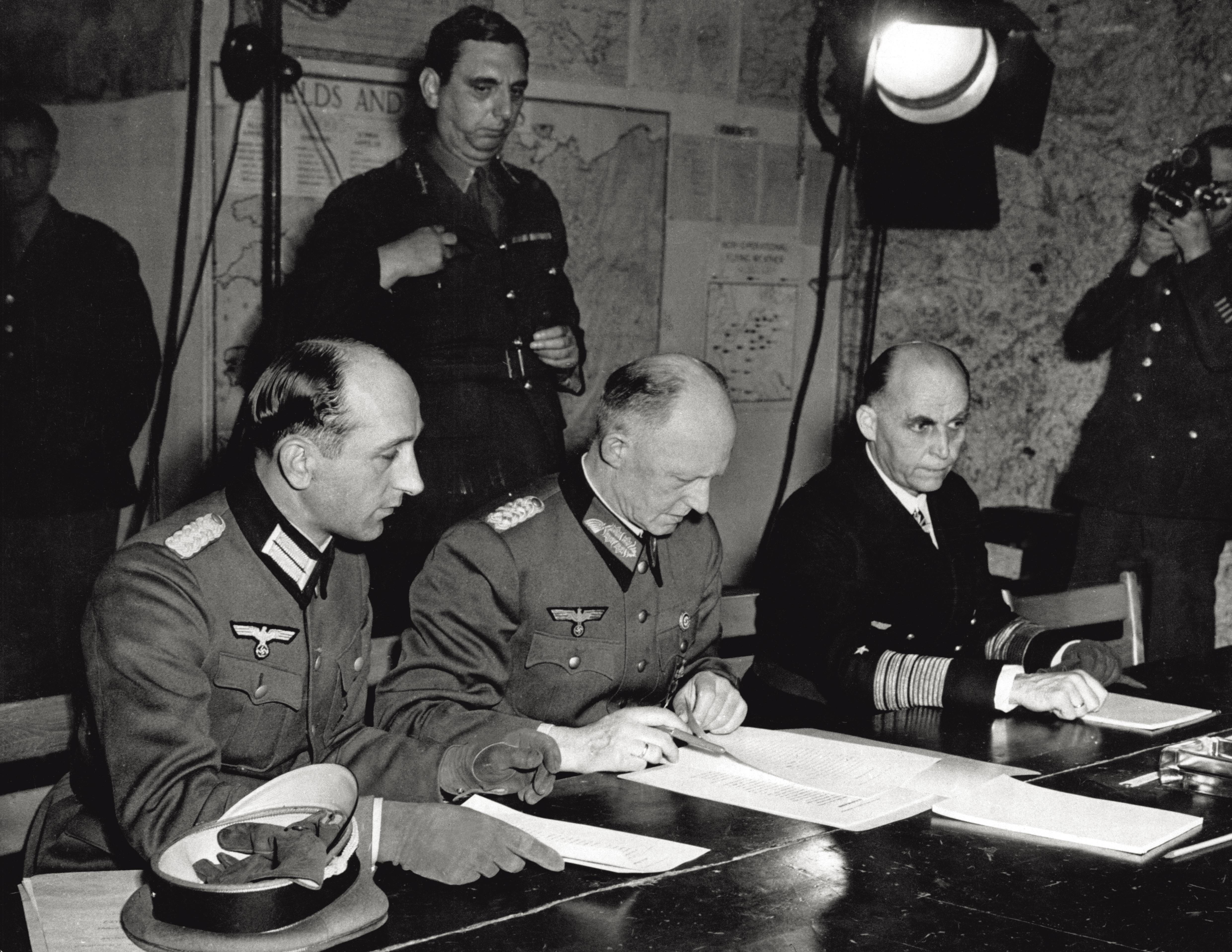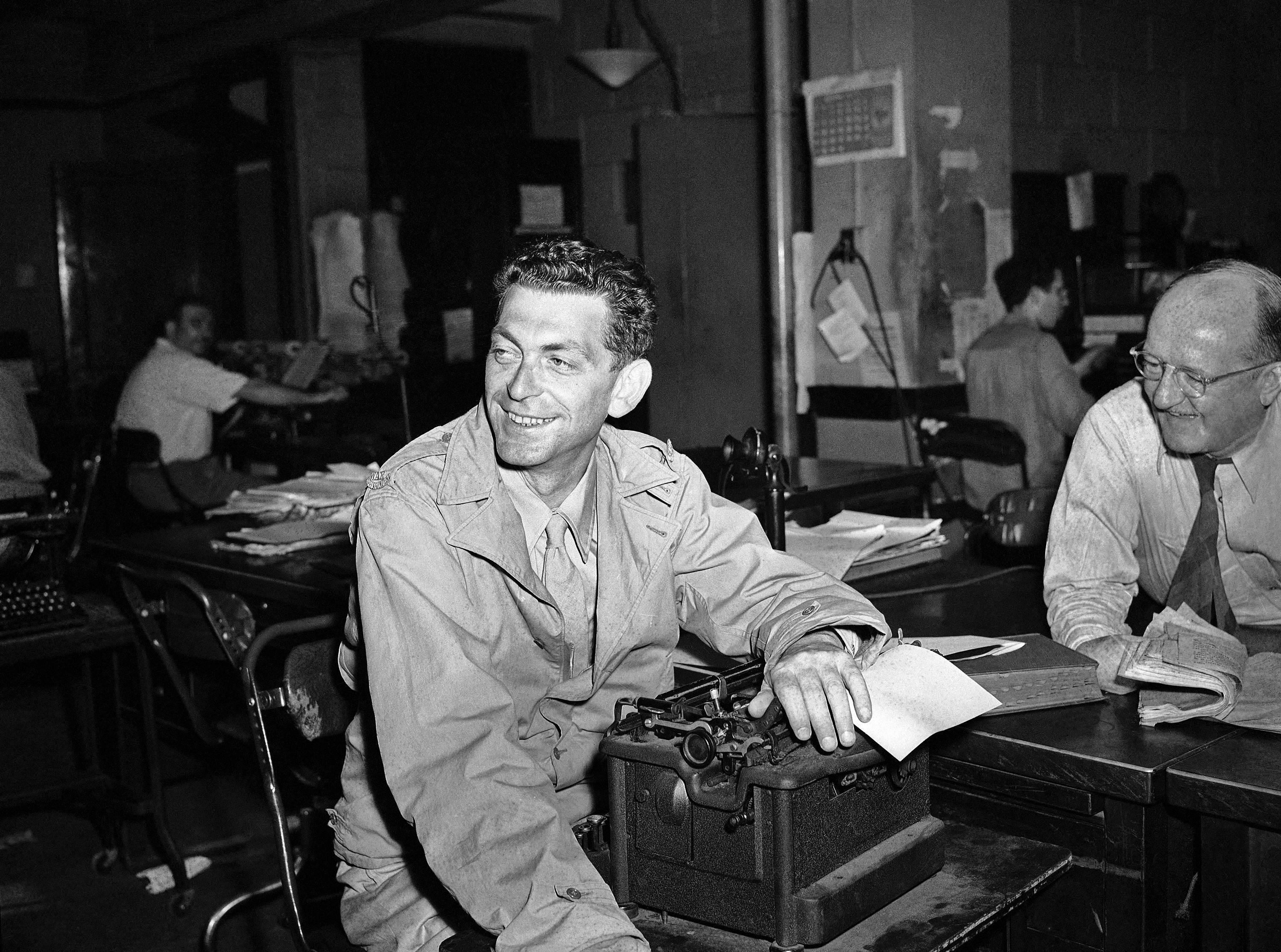“This is Ed Kennedy in Paris. The war is over and I am going to dictate. Germany has surrendered unconditionally,” the war correspondent said, according to an account of the call by Tom Curley, AP’s former president. “That’s official. Make the date[line] Reims and get it out.”
With that wire, Associated Press war correspondent Edward Kennedy landed the biggest scoop of his career — while simultaneously ruining it.
Only able to dictate about 200 words before the connection was lost, Kennedy’s news about the conclusion of the world’s largest and bloodiest conflict traveled with such speed that inquiries were received in Paris even before he was cut off, according to the New York Times.
As one of 17 war correspondents to witness the official German surrender in Reims, France in the early hours of May 7, 1945, Kennedy naturally sought to file posthaste.
However, the news remained embargoed, with military handlers insisting that the momentous occasion be kept secret for several hours. As the correspondents returned to their lodgings at Hotel Scribe in Paris that day, the embargo was extended for 24 hours without explanation.
We were “seventeen trained seals,” Kennedy caustically recalled in his memoir, “Ed Kennedy’s War: V-E Day, Censorship, & the Associated Press.”

The embargo was not, Kennedy learned, “for security reasons, which might have been an acceptable rationale, but for political reasons… It turned out that Russia’s leader, Joseph Stalin, wanted to stage a signing ceremony of his own to claim partial credit for the surrender, and U.S. officials were interested in helping him have his moment of glory,” writes the Washington Post.
After hearing that the German high command had broadcasted the surrender from its headquarters in Flensburg, Germany on May 7, Kennedy bristled.
“For five years you’ve been saying that the only reason for censorship was men’s lives. Now the war is over. I saw the surrender myself. Why can’t the story go?” he reportedly told a clerk at the hotel’s censor’s office.
The censor replied that he did not have the authority to release Kennedy’s story.
“All right then,” Kennedy retorted. “I give you fair warning here and now: I am going to file it.”
Calling up AP’s London office, the next words Kennedy uttered made history — and was on the wire within minutes.
The retribution for Kennedy was swift, however. Stripped of his credentials, the war correspondent was then ordered home by Allied leadership.
According to General Dwight D. Eisenhower, Kennedy’s suspension was “due to self-admitted deliberate violation of SHAEF regulations and breach of confidence.”
To add insult to injury, the following day Kennedy’s fellow correspondents, perhaps as jealous retribution, condemned his actions with a vote of 54-2, for “the most disgraceful, deliberate and unethical double-cross in the history of journalism.”
On May 10, Robert McLean, the president of the AP board, issued a statement saying AP “profoundly” regretted the story and, after placing Kennedy on an “indefinite suspension,” the news agency quietly parted ways with Kennedy several weeks later.
Despite the public rebuke, the reporter remained adamant that his actions were justified.
Upon his arrival in New York on June 4, Kennedy told a group of reporters that he “would do it again. The war over; there was no military security involved, and the people had the right to know.”
The reporter who observed the bloody Spanish Civil War; who covered Eastern Europe and the Balkans; who reported on the war in North Africa; and who joined the Seventh Army’s invasion of southern France in 1944 suddenly found himself without a job.
Hired as a managing editor by the sympathetic owner of the Santa-Barbara News-Press in California, the new position was surely a step down for the veteran war correspondent.
In 2012, 67 years after Kennedy broke the news of the century, the AP issued a formal apology for its actions.
It was “a terrible day for the AP. It was handled in the worst possible way,” Curley stated. “Once the war is over, you can’t hold back information like that. The world needed to know.”
The apology was accompanied by a push from journalists to award a posthumous Pulitzer Prize to Kennedy. Although nominated for the prize in 2013, the WWII reporter failed to win the award. However, as USA Today notes, “Pulitzer rules don’t prohibit resubmissions,” and there have been several pushes in recent years for Kennedy’s recognition.
Kennedy, who died in 1963 after being struck by a car, did not live to see his vindication.
A monument to Kennedy now stands in Laguna Grande Park in Seaside, California, with the apt inscription: “He gave the world an extra day of happiness.”





